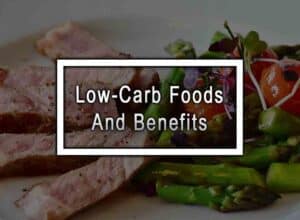Table of Contents
ToggleSay Goodbye to Acid Reflux Symptoms: 10 Simple and Surprising Ways to Find Relief
Acid reflux can be a real pain. That uncomfortable burning sensation in your chest can disrupt your daily routine and leave you feeling miserable. Luckily, there are several simple and surprising strategies you can use to alleviate acid reflux symptoms and get back to feeling your best.
Elevate your sleeping position
Elevating your head can help keep stomach acid from flowing back up your esophagus while you sleep.
Chew gum
Chewing gum can help stimulate saliva production and neutralize the acid in your stomach.
Drink aloe vera juice
Aloe vera has natural anti-inflammatory properties that can help soothe and heal the lining of your digestive tract.
Eat smaller, more frequent meals
Rather than three large meals, try eating smaller meals throughout the day to help prevent acid reflux.
Avoid wearing tight clothing
Tight clothing can put added pressure on your stomach, causing acid to flow back up into your esophagus.
Sip on ginger tea
Ginger has been shown to have anti-inflammatory and gut-soothing benefits, making it a great natural remedy for acid reflux.
Stay upright after eating
Lying down immediately after a meal can increase your chances of experiencing acid reflux symptoms.
Avoid trigger foods
Certain foods, such as spicy or fried foods, can exacerbate acid reflux symptoms. Try keeping a food diary to help identify your trigger foods.
Practice relaxation techniques
Stress can increase your chances of experiencing acid reflux symptoms. Try practicing relaxation techniques, such as meditation or deep breathing.
Sip on apple cider vinegar
While it may seem counterintuitive, apple cider vinegar can help neutralize stomach acid and alleviate acid reflux symptoms.
Conclusion
Alleviating acid reflux symptoms doesn’t have to be difficult. By incorporating these simple and surprising strategies into your daily routine, you can start to feel better and enjoy life to the fullest.
Acid Reflux FAQ
Here are the most common questions about acid reflux.
What causes acid reflux?
Acid reflux is often caused by a weakened or malfunctioning lower esophageal sphincter (LES), the muscle that separates the stomach from the esophagus. Other factors that can contribute to acid reflux include obesity, pregnancy, smoking, certain medications, and dietary habits.
What are the symptoms of acid reflux?
Symptoms of acid reflux can include heartburn, chest pain, nausea, regurgitation, difficulty swallowing, and a sour or bitter taste in the mouth.
How is acid reflux diagnosed?
Acid reflux can be diagnosed through physical examination, medical history review, and various tests, such as an upper endoscopy, ambulatory acid probe test, or esophageal manometry.
What are the treatment options for acid reflux?
Treatment for acid reflux may include lifestyle modifications, such as dietary changes, weight loss, and smoking cessation, as well as medications, such as proton pump inhibitors (PPIs), H2 blockers, and antacids. In severe cases, surgery may be necessary.
Can acid reflux lead to complications?
Yes, untreated acid reflux can lead to complications such as esophagitis, ulcers, Barrett’s esophagus, and esophageal cancer.












